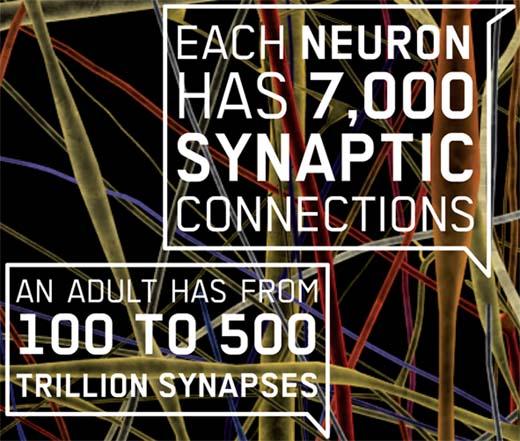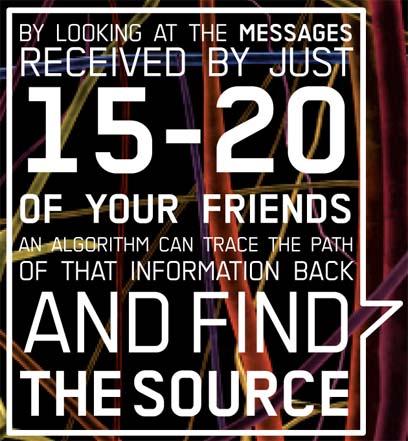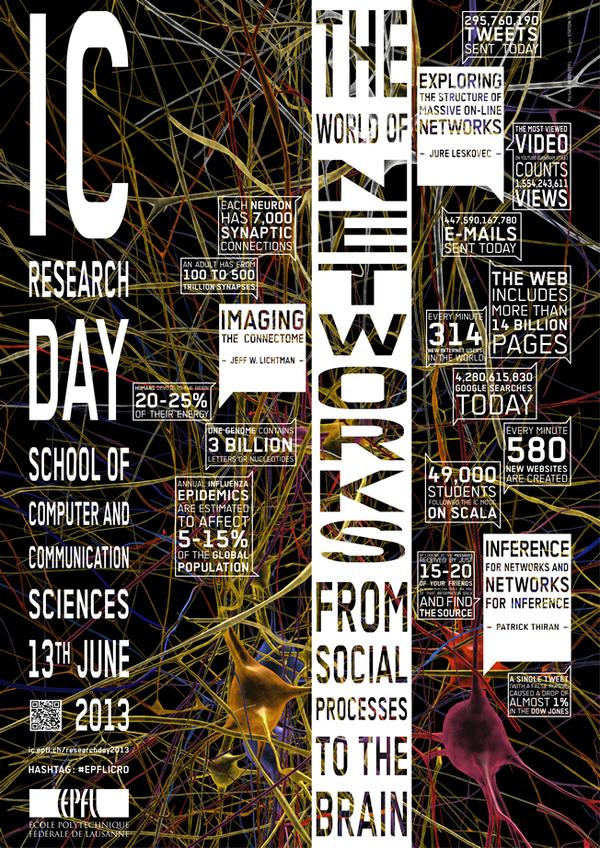"THE WORLD OF NETWORKS: from Social Processes to the Brain"

© 2013 IC Research Day
What do the following three facts have in common?
1. The human brain has up to 500 billion synapses.
2. The Black Death (bubonic plague) wiped out 60% of Europe's population.
3. The World Wide Web is comprised of over 14 billion pages.
Answer: the study of networks, whether they be neural, epidemic or social!
On June 13th, 2013, three renowned speakers will share the multifaceted world of networks with us at the EPFL's School of Computer and Communication Sciences Research Day.
 Computational models of networks are the central tools in our effort to understand the behavior of large distributed systems: social networks capture how information and influence flow through society; infection networks describe how a disease becomes an epidemic; and neural networks replicate the cognitive patterns of their biological counterparts.
Computational models of networks are the central tools in our effort to understand the behavior of large distributed systems: social networks capture how information and influence flow through society; infection networks describe how a disease becomes an epidemic; and neural networks replicate the cognitive patterns of their biological counterparts.
These models enable us to predict and control these processes. For example, we can reason about strategies for winning a word-of-mouth campaign on the social web, identify the likely source of an epidemic after the fact or model how the brain evolves with learning...so many phenomena and ramifications that the IC Research Day 2013 will enable us to explore!
The IC Research Day 2013 offers a particularly original program bringing together:
- a specialist in online social networks, Jure Leskovec
- a specialist in neural activity, Jeff W. Lichtman
- a specialist in network tomography and inference, Patrick Thiran.
 Jure Leskovec is a specialist in online social networks. The social interactions on Facebook or LinkedIn create massive digital traces that enable us to monitor information flows between people and analyze how users of social information influence each other. Leaders, trendsetters and followers can be identified and their exchanges modeled in terms of signals and actions. These mutual influences on social networks are crucial for the web industry, which derives its income from advertising while offering free access to users.
Jure Leskovec is a specialist in online social networks. The social interactions on Facebook or LinkedIn create massive digital traces that enable us to monitor information flows between people and analyze how users of social information influence each other. Leaders, trendsetters and followers can be identified and their exchanges modeled in terms of signals and actions. These mutual influences on social networks are crucial for the web industry, which derives its income from advertising while offering free access to users.
 Jeff W. Lichtman teaches molecular and cellular biology. What links him to the other two speakers is the fact that he creates connectional maps of the brain in order to study the neural network. These maps enable him to see the entire architecture of connections between synapses and observe what happens when neurons or synapses are missing or misconnected. These maps also provide indications of how the network of synapses develops, particularly during the learning process, but also how brain circuits age.
Jeff W. Lichtman teaches molecular and cellular biology. What links him to the other two speakers is the fact that he creates connectional maps of the brain in order to study the neural network. These maps enable him to see the entire architecture of connections between synapses and observe what happens when neurons or synapses are missing or misconnected. These maps also provide indications of how the network of synapses develops, particularly during the learning process, but also how brain circuits age.
Patrick Thiran and his team have mathematically demonstrated that it is possible to reconstitute networks in which most of the nodes and connections are missing. More concretely, by taking into account the information available on the network and including the time factor, it is possible to use algorithms  to retrace the source of a false rumor, to identify the leaders of criminal organizations or even to predict the progression of an epidemic. It is also possible to design models to predict the political choices of voters.
to retrace the source of a false rumor, to identify the leaders of criminal organizations or even to predict the progression of an epidemic. It is also possible to design models to predict the political choices of voters.
Although information and computing technologies are crucial in modeling the brain, the opposite is also true: information technology and communication systems can benefit from the study of the architecture of brain circuits. In this sense, the Research Day makes a major contribution by "networking" these different fields.
Following these three fascinating talks, the afternoon will be set aside for the Poster Session showing the latest research being conducted in the laboratories of the EPFL's School of Computer and Communication Sciences.
This year's event on the subject of networks is an ideal opportunity to launch a Wall of Tweets. In order to take part, and especially to ask your questions via Twitter during the talks, you may use the following Hashtag: #EPFLICRD.
IC Research Day
Tuesday, June 13th, 2013, Auditorium SG1, 9:00 a.m. - 4:00 p.m., detailed program and registration: http://ic.epfl.ch/researchday2013
Event chaired by:
Professor Matthias Grossglauser
Professor Patrick Thiran
This year's guest speakers:
Jure Leskovec, Stanford University: “Exploring the Structure of Massive On-Line Networks”
Jeff W. Lichtman, Harvard University: “Imaging The Connectome”
Patrick Thiran, EPFL: “Inference for Networks and Networks for Inference”
